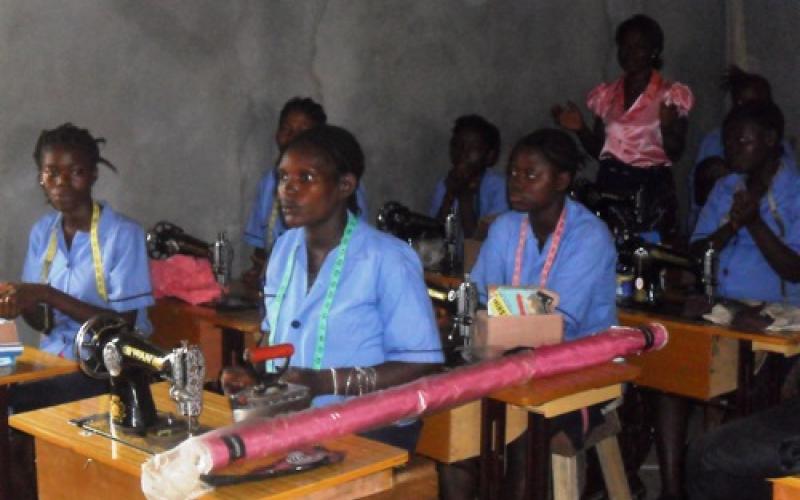
As part of my gap year, I decided to do something different than a typical student. I wanted to do something that would make a real-life difference in people's lives, and Balloon Ventures was able to provide me with a chance to do that.
Balloon Ventures is an English funded government social enterprise that was started in 2011 with the aim of providing continued investment, education, and support to local entrepreneurs building sustainable businesses. Like myself, they believe that the unleashing of potential in small scale businesses will end poverty in Africa by empowering Africans to provide for themselves instead of relying on foreign aid, which is often misused and not invested.
Balloon Ventures supports entrepreneurs by giving them very low-interest rate loans to either start a new business venture, or to innovate and improve upon an existing business. Loans are awarded based on a competition that is judged by a panel made up of a Saco (loan distributor), a volunteer, and a team leader. Only about half of the entrepreneurs who apply will receive a loan, but they will all develop many valuable skills.
Before the selection process, volunteers from Balloon Ventures work with hopeful entrepreneurs to develop a business plan and sales pitch. Volunteers from Kenya and the UK participate in a two-month process in which they prepare entrepreneurs for the competition. Volunteers go through a week of training before being separated into groups of three to four other volunteers. Then the group is assigned four to five entrepreneurs who they will help prepare for the loan competition.
I was placed in a group with Tamara, a UK volunteer, and Linda, a Kenyan volunteer. We were assigned 4 volunteers: Francis, who was our youngest entrepreneur at 21 and who wanted to start a chicken hotel (restaurant) and eatery; Abeuton, who wanted to start a jewellery shop in town; Chris, who wanted to start a smoothie shop and fruit salad delivery service; and Sarah, who hoped to improve profits at her established bakery service which delivered to her local community.
Tamara, Linda and I agreed to each work with one volunteer so that none of the four entrepreneurs would be left out, but because there were four entrepreneurs and we were only three volunteers, I volunteered to work with two entrepreneurs, Chris and Francis.
We used the first week and a half to help the entrepreneurs define their target markets and create a plan for how they would grow their business. We also went over the importance of finances and how to keep records. Then, we each focused on the entrepreneurs that we had chosen.
Francis was very committed and coachable, so he was very easy to work with. Within the next two weeks, he went out and bought chickens from his local cheap supplier, butchered them, and sold them to the locals. These sales were crucial because they demonstrated a demand for the product and they showed that the business was feasible. We also tested things like branding, and we looked at the local butcheries to see how we could compete and differentiate ourselves from them to make a stronger case for why Francis deserved the loan. In the following weeks, I prepared the pitch document and Francis for the pitch presentation.
After Francis had delivered the pitch, the panel decided that the business had potential to earn, so the panel awarded him 30,000 Ksh ($290 US) of the 40,000 Ksh he asked for. With this loan, he would be able to buy all the resources that he needed to start his business.
Chris was harder to coach than Francis was. He already had a degree in economics and a job in insurance. He had managed a business before, and he already had a solid business idea in place. It took some effort and time, but eventually Chris he became slightly easier to coach. We tested his fruit and smoothie product by 'hawking' (going by foot around the town and selling the fruit). Successfully selling the product was important to demonstrate the business’s potential. I created the pitch document for Chris over the remaining weeks and tried to prepare him for the pitch. I was not allowed to watch him make his pitch as I did with Francis, but I was told that he came across very well. That success, in combination with his experience managing and the business’s earning potential, he was awarded the maximum loan amount of 50,000 Ksh ($483 US).
Microfinance was hoped to be Africa's fast track out of poverty by giving Africans the potential to earn by giving them the funds to start businesses, but the potential of microfinance has not been realized. Why? Balloon put's it down to:
- Interest rates being too high, or hidden rates which can really make or break a business. '”Interests rates have been documented at anywhere between 10% and 100% with anecdotal reports of interest set at over 100% up to almost 200%” (Balloon Ventures) .
- Repayment terms are constraining. (Either being too frequent or/and begin too soon after they receive the loan.)
- Once given the loan there's little if any support on how to use it. Sophia Nakuru of Kenya made this point well when she said “Someone can give you money but if you don’t know how to use it, you are going to use it in a wrong way.”
- Multiple loans given to the same person. Borrowers often take out new loans to pay off their debt resulting in a vicious cycle.
Balloon Venture addresses all these issues to make sure that the microfinance loan lives up to its potential and that the loans deliver what it promised. This is done by focusing on and supporting the entrepreneur who will receive the loan. And who knows, if used as a blueprint when giving out microfinance loans, Balloon Venture’s methods could help lift Africa out of poverty finally!
By Denzil Buck
References
http://balloonventures.com/impact/what-makes-balloon-unique-to-our-beneficiaries/

